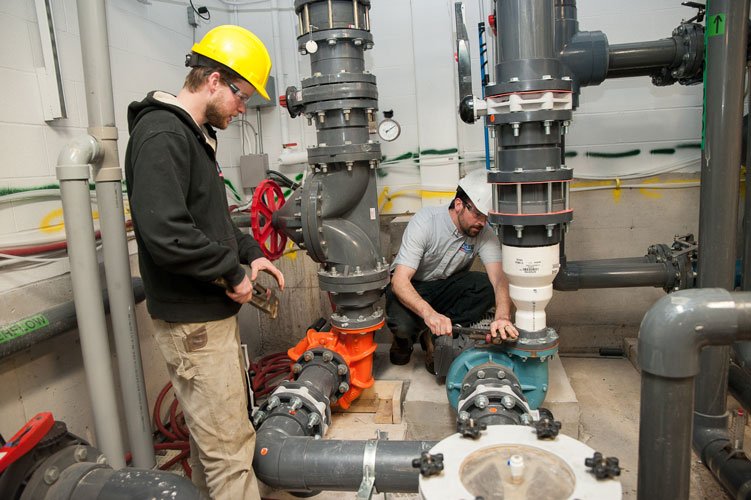What Does Commercial Plumbing Involve?
RH Business Marketing Solutions
Plumbing systems, in general, consist of a complex network of pipes and fixtures designed to distribute water supplies and wastewater systematically. Plumbing channels essentially have the same primary function regardless of the property. However, there are significant distinctions between residential and industrial plumbing.
Commercial plumbing involves the preservation and distribution of large-scale waste removal and water supplies for buildings and other establishments such as hospitals, schools, offices, etc. Unlike residential water systems, commercial pipes can accommodate constant and several uses at almost the same time.
Responsibilities of a Commercial Plumber
Due to the complexity of the drainage system involved, commercial plumbers must have a general understanding of building regulations, follow structural plans and designs, and systematically maintain and distribute water supplies and wastewater management. Industrial plumbers also rely on specialized tools and panels such as steel insulated exterior access panels since most pipes and fixtures are behind walls and floors.
To further elaborate on the tasks of a commercial plumber, here are some of their primary responsibilities when doing plumbing maintenance and installation.
Installation tasks include:
Fitting toilet and kitchen fixtures
Drinking fountains
Sprinkler systems
Laying water and sewer lines
Boiler systems
Maintenance tasks include:
Check for active leaks
Signs of corrosion
Measure water pressure
Check valves and drains
Backflow testing
Perform preventive maintenance and inspections
Meeting with property owners to discuss potential plumbing issues
Pipe assembly
Being a commercial plumber means having more responsibilities than residential plumbers; that is why most businesses and building owners ultimately hire seasoned experts with years of experience and industry knowledge to meet their needs and demands.
Since commercial systems are more extensive, it would benefit your business if you only hire a reputable plumber with a proven track record. They also need to be licensed and insured with enough confidence to provide warranties for equipment and labor.
Key Differences of Commercial and Residential Plumbing
Although there are similarities in the scope of work, there is a significantly massive gap between commercial and residential plumbing. To further elaborate, here are some of the fundamental differences between commercial and residential.
Size and Scope - Commercial plumbing in large-scale commercial buildings, offices, and recreational facilities is more complex than residential systems. For instance, hotel facilities require efficient plumbing systems that can support multiple usages at the same time. However, due to the higher demand and multitude of users, commercial pipes and fixtures tend to wear out faster, thus requiring regular preventive maintenance and inspection now and then.
Multiple Storeys - Commercial plumbing systems encompass several pipes and fixtures for each floor for buildings and other multi-level structures. Commercial plumbers need to account for gravity and ensure that the whole system is functioning adequately. In addition, water pressure is often a critical concern for high-risk establishments. The plumber must be able to efficiently ensure that the water pressure is standard on all floors.
Working Hours and Inspection Frequency - Residential owners are more lenient in scheduling maintenance and repair than the high demands of the commercial industry. Annual checks are sufficient for residential houses, but commercial pipes need to be frequently checked due to constant usage as minor damages can quickly evolve into something more severe and inconvenient.
Industry Knowledge - Since commercial installations involve industrial-grade pipes and equipment, many business owners only hire licensed plumbers with the relevant experience and knowledge required to perform the necessary plumbing tasks successfully. The problems in commercial systems are more diverse and encompassing; therefore, industrial plumbers must efficiently resolve multiple issues when called.
Commercial plumbing involves more than just a simple faucet and pipe installation, maintenance, and repair. Despite having the exact scope of work, commercial plumbing is more demanding and intricate than residential systems mainly because of the business aspect and how a simple leak can have devastating effects if not immediately resolved. Understanding the primary differences between a commercial and domestic plumber is vital in ensuring that everything functions as it should.
Guest Contributor: Chris Jackson
